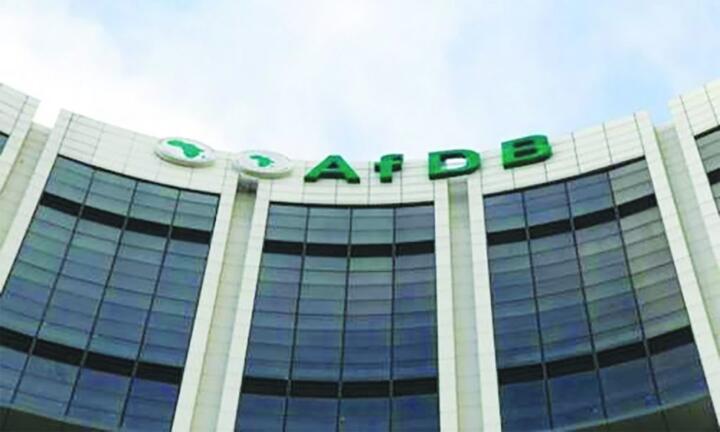The African Development Bank (AfDB) has announced a $25 million equity investment into The Currency Exchange Fund (TCX), a global development finance initiative designed to provide local currency hedging solutions for emerging and frontier markets. This latest move is aimed at boosting Africa’s financial stability, reducing foreign exchange risks, and supporting sustainable development projects across the continent.
The decision underscores AfDB’s growing commitment to addressing the chronic mismatch between revenue earned in local currencies and debts serviced in foreign currencies, a challenge that has long undermined businesses, governments, and infrastructure projects across Africa. By supporting TCX, AfDB hopes to encourage more lending in local currencies, thereby strengthening the resilience of African economies against external shocks.

According to the bank, the investment will directly enhance TCX’s capital base and allow the fund to expand its ability to issue hedging instruments in African currencies, particularly in illiquid and fragile markets where such options are scarce. TCX specialises in offering long-term currency hedges, which are often not available in commercial financial markets, thus helping borrowers manage exposure to volatile exchange rates.
For decades, African economies have grappled with high levels of debt distress, partly driven by fluctuations in foreign exchange markets. Many governments, businesses, and small enterprises borrow in U.S. dollars or euros but generate revenue in local currencies. When local currencies depreciate, the cost of servicing these foreign loans soars, often leading to defaults, higher debt burdens, and economic instability. AfDB’s $25 million injection is expected to reduce these vulnerabilities by enabling borrowers to secure local currency financing that is insulated from global currency swings.
Officials at AfDB explained that the decision aligns with the institution’s Ten-Year Strategy, which prioritises inclusive financial systems, resilient economies, and deepening of African capital markets. They emphasised that expanding access to hedging solutions is not just a technical financial measure but a developmental necessity. By creating a more stable borrowing environment, local enterprises, micro, small, and medium-sized businesses (MSMEs), as well as governments, will be better positioned to invest in critical infrastructure, energy, healthcare, and education.
The partnership is also seen as a boost to African integration efforts, as more local currency financing will enable regional trade and investment flows to thrive without being stifled by foreign exchange shortages. Analysts argue that this will further support the African Continental Free Trade Area (AfCFTA), which requires robust financial infrastructure to unlock its full potential.
TCX itself has built a reputation as a unique player in global finance since its establishment in 2007. It has supported billions of dollars in local currency financing across developing regions, with Africa accounting for a large portion of its portfolio. By targeting illiquid markets—those with limited access to foreign exchange and financial instruments—TCX plays a role that commercial banks often shy away from due to risk. The AfDB’s investment will strengthen this mission by enabling TCX to extend services to even more underserved African economies.
The partnership is expected to have immediate benefits for borrowers. Infrastructure developers, for instance, who rely heavily on imported materials and long-term financing, often face severe risks when their revenues cannot keep pace with debt payments in foreign currencies. Similarly, small businesses that take loans denominated in dollars are vulnerable to sudden devaluations of their local currencies. With hedging options available, these risks can be managed, allowing businesses to focus on growth and job creation.
Beyond businesses, governments also stand to gain. Several African countries have been trapped in debt crises partly because of exposure to foreign currency loans. With TCX’s expanded reach, governments can access local currency funding for essential projects like roads, power plants, schools, and hospitals, without exposing national budgets to the volatility of global exchange rates.
Industry observers believe the move could also encourage other international development partners and private investors to increase their support for local currency financing. By improving the risk management environment, AfDB’s investment could help crowd in more capital to Africa, where the financing gap for infrastructure alone is estimated at over $100 billion annually.
However, some experts caution that while hedging reduces risk, it is not without costs. Borrowers often pay a premium for currency hedging, which could raise financing expenses. The challenge for TCX and AfDB will be to ensure that hedging products remain affordable, particularly for smaller businesses and low-income countries. AfDB officials have acknowledged this, stressing that their involvement will help lower costs and broaden access through subsidies and blended finance approaches.
In addition to strengthening Africa’s resilience, the investment aligns with global efforts to rethink development finance. Multilateral institutions increasingly recognise that tackling foreign exchange risk is central to solving debt crises and driving sustainable growth. AfDB’s proactive stance in supporting TCX signals Africa’s determination to take ownership of its financial destiny by reducing reliance on volatile foreign markets.
In the long term, the success of this initiative will depend on effective implementation and the willingness of African governments, businesses, and investors to embrace local currency financing as a sustainable alternative. If executed well, the collaboration could serve as a model for other regions facing similar challenges, positioning Africa as a leader in innovative development finance.
With this $25 million equity injection, AfDB is not only providing financial support but also sending a powerful message: Africa’s growth should not be perpetually undermined by external vulnerabilities. By focusing on local solutions to global challenges, the bank and its partners are laying the foundation for stronger, more resilient economies that can withstand shocks and unlock inclusive prosperity.
Support InfoStride News' Credible Journalism: Only credible journalism can guarantee a fair, accountable and transparent society, including democracy and government. It involves a lot of efforts and money. We need your support. Click here to Donate
